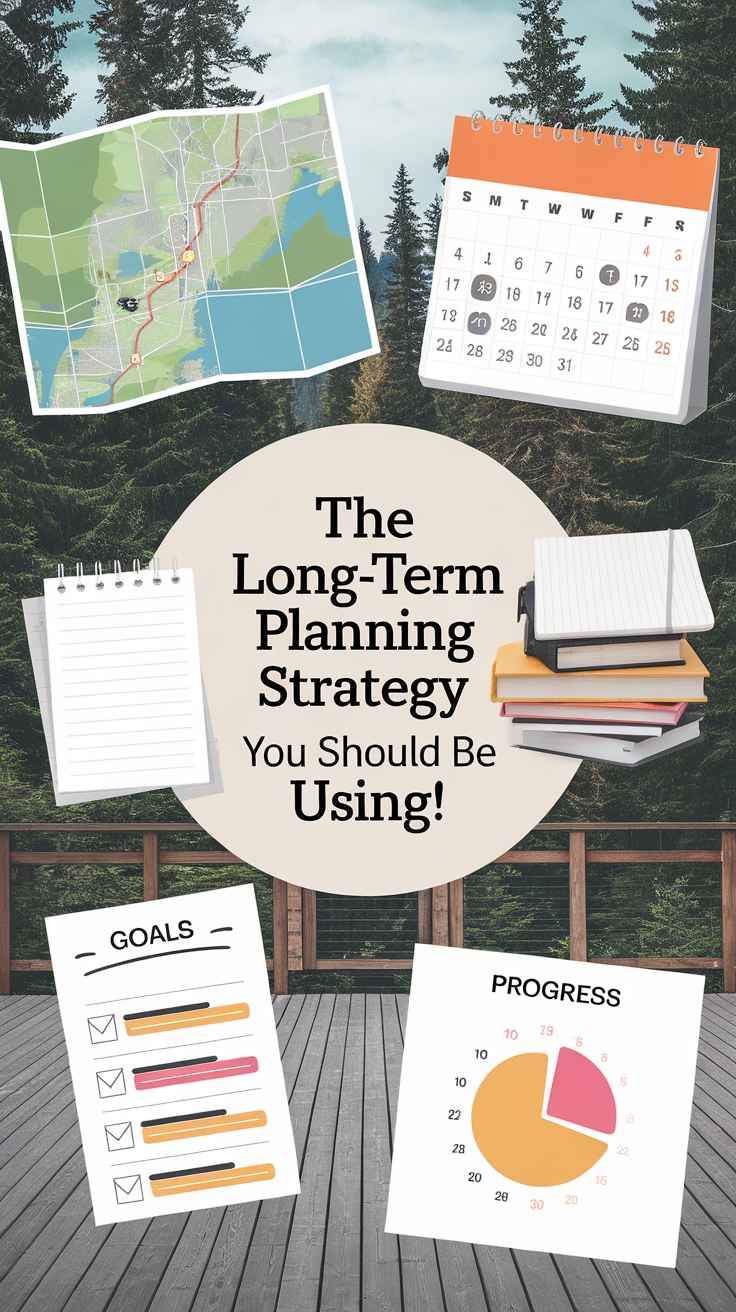The Long-Term Planning Strategies No One Talks About
When it comes to long-term planning, you might not hear about some game-changing strategies. Start by reverse engineering your life goals, breaking them down into manageable steps. Implement micro-habits, like a morning meditation or a gratitude practice, to create lasting change. Develop adaptable decision frameworks that align with your core values, ensuring you can pivot when circumstances shift. Embrace uncertainty as a chance for growth, and connect with community support networks for valuable resources and encouragement. If you’re curious about how to put these strategies into action, there’s more to explore that can guide you on your journey.
Key Takeaways
- Embrace uncertainty by viewing it as a growth opportunity, allowing flexibility in your long-term plans and strategies.
- Leverage community support networks to gain diverse perspectives and resources, enhancing your planning process.
- Develop adaptable decision frameworks based on your core values, ensuring that choices align with your long-term objectives.
- Implement micro-habits that contribute to your goals, fostering significant change through small, consistent actions over time.
- Regularly reassess and adjust plans to stay aligned with evolving personal values and passions, ensuring fulfillment in your journey.
Reverse Engineering Life Goals
When you think about your life goals, it can be overwhelming to know where to start. Instead of diving headfirst into the chaos, try reverse engineering.
Begin with your ultimate goal, whether that’s a career milestone, personal achievement, or lifestyle change. Visualize where you want to be in five or ten years. From there, break it down into smaller, manageable steps.
Ask yourself what actions you need to take to reach that end point. Identify the skills, resources, or connections required.
Implementing Micro-Habits
After you’ve mapped out your long-term goals through reverse engineering, the next step is to turn those ambitions into reality by implementing micro-habits.
These small, manageable actions can lead to significant change over time. Here’s how to get started:
- Start your day with a five-minute meditation to clear your mind.
- Read one page of a book daily to expand your knowledge.
- Drink a glass of water first thing in the morning for hydration.
- Write down one thing you’re grateful for each night to cultivate positivity.
Developing Adaptable Decision Frameworks
To navigate the complexities of long-term goals, developing adaptable decision frameworks is essential. These frameworks help you assess situations, weigh options, and respond effectively to changing circumstances.
Start by identifying your core values and objectives, as they’ll guide your decision-making process.
Next, create a set of criteria for evaluating choices. This can include factors like potential risks, benefits, and alignment with your long-term vision.
Regularly revisit and adjust your framework to reflect new information and insights, ensuring it remains relevant.
Embracing Uncertainty in Planning
Although uncertainty can feel intimidating, embracing it is essential for effective long-term planning. Instead of fearing the unknown, view it as an opportunity for growth.
When you approach planning with an open mind, consider these aspects:
-
Flexibility: Adapt your strategies to changing circumstances.
-
Diverse Perspectives: Gather insights from various sources to inform your decisions.
-
Risk Assessment: Identify potential risks and develop contingency plans.
-
Continuous Learning: Stay curious and ready to adjust based on new information.
Leveraging Community Support Networks
When you tap into community support networks, you not only enhance your planning efforts but also build a foundation for resilience.
These networks can provide resources, information, and emotional support that’s vital during challenging times. By connecting with local organizations, fellow planners, and community members, you create a safety net that helps you navigate uncertainties.
Engaging with others fosters collaboration, allowing you to share insights and strategies that can improve your long-term plans. You might discover new opportunities or gain access to tools that you wouldn’t have found on your own.
Remember, the power of community lies in its collective strength; leveraging these relationships can make your planning efforts more effective and sustainable.
Don’t underestimate the value of a supportive network!
Prioritizing Personal Values and Passions
As you commence on long-term planning, prioritizing your personal values and passions can greatly enhance your journey. When you align your goals with what truly matters to you, you’ll find greater fulfillment and motivation.
Consider these key aspects:
-
Identify Core Values****: Reflect on what principles guide your life—honesty, creativity, or compassion.
-
Explore Passions: Think about activities that energize you, whether it’s painting, writing, or volunteering.
-
Set Meaningful Goals****: Create objectives that resonate with your values and passions, guaranteeing they inspire you.
-
Regularly Reassess: Periodically check in with yourself to guarantee your plans still align with your evolving values.
Frequently Asked Questions
How Do I Stay Motivated During Long-Term Planning?
Staying motivated during long-term planning can be tough. Break your goals into smaller tasks, celebrate small wins, visualize your success regularly, and remind yourself of your purpose to keep your energy and enthusiasm high.
What Tools Can Assist in Tracking My Micro-Habits?
To track your micro-habits effectively, consider using apps like Habitica or HabitBull. They offer reminders, progress tracking, and community support, making it easier for you to stay accountable and motivated on your journey.
How Do I Measure the Success of My Decision Frameworks?
To measure your decision frameworks’ success, track outcomes against your goals, analyze feedback, and adjust as needed. Regularly review your process, noting patterns, and celebrate small wins to stay motivated and improve continuously.
What Are Effective Ways to Embrace Uncertainty in Life Planning?
Embracing uncertainty in life planning means staying flexible and open-minded. You can set adaptable goals, regularly reassess your priorities, and cultivate resilience. By accepting change, you’ll navigate life’s unpredictability with confidence and purpose.
How Can I Find and Connect With Supportive Communities?
To find supportive communities, explore local events, join online forums, and volunteer for causes you care about. Engaging with others who share your interests can create meaningful connections and foster a sense of belonging.



